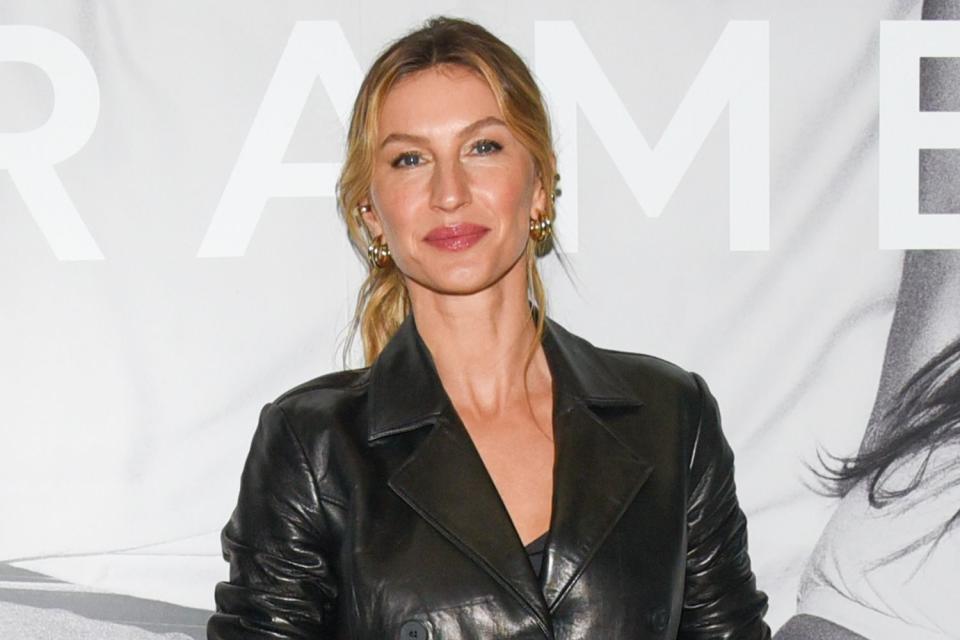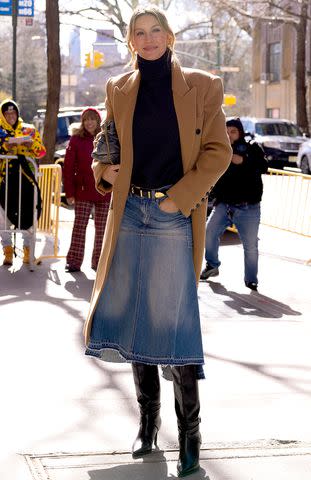Gisele Bündchen Shares the ‘Long Journey’ to Overcoming ’Severe Depression and Panic Attacks’
The supermodel and author of the cookbook 'Nourish' said the road to overcoming her panic attacks started with changing her diet and lifestyle

Steve Eichner/WWD via Getty
Gisele BündchenGisele Bündchen says overcoming the depression and panic attacks that she faced when she was younger “was a long journey.”
“I had no idea that it was correlated with my lifestyle — and food was a big part of it,” the supermodel said while appearing on The View to talk about her new cookbook, Nourish.
“I had severe depression and panic attacks in my twenties,” Bündchen, who turns 44 in July, explained.
When co-host Joy Behar suggested her mental state “had to do with the fact that you left your family at 14” to pursue a modeling career, Bündchen said, “I actually was loving [it]. I felt really independent. I was emancipated at 14 and I was living in Japan and moved to New York at 15. But I thought it was an amazing life ... I just felt very grateful that I had a job and I was traveling the world.”

Victor VIRGILE/Gamma-Rapho via Getty
Gisele Bündchen in Paris in 1998It wasn’t until her early twenties when Bündchen said, “I started having severe panic attacks … I didn’t know what do.”
Symptoms of a panic attack include a sense of doom, a rapid heart rate, sweating, trembling and shortness of breath, according to the Mayo Clinic, which adds, “One of the worst things about panic attacks is the intense fear that you'll have another one.”
Related: What's the Difference Between Anxiety and Depression?
Bündchen said she sought help for “over a year and a half” — and nothing worked.
“I wanted to feel better, I didn’t know what to do, so I found this amazing naturopath and he said to me, ‘Gisele, we have to change your diet.’ And I was like, ‘Diet, what does that have to do with panic attacks?’ And he’s like, ‘No, it has everything to do with it.’ ”

Gisele Bundchen/Instagram
Gisele Bündchen shares the cover of her cookbook 'Nourish'“I told him about my day. I drink, I smoke, I have coffee — and he said 'Listen… stop right there.’ He says, 'You’re not sleeping. You’re in different time zones all the time. You’re eating, like, terrible all day.’ ”
As she explained, “I was the kind of person who was like, ‘As long as it’s in the supermarket, it’s great to eat.’ Anything. I was just like, ‘Let me eat it.’ With comfort food, you’re traveling, you’re tired.”

WavyPeter / SplashNews.com
Gisele Bündchen arrives to 'The View' in New York CityThat’s when co-host Sunny Hostin chimed in that “French fries taste very good when you’re tired.”
Never miss a story — sign up for PEOPLE's free daily newsletter to stay up-to-date on the best of what PEOPLE has to offer, from celebrity news to compelling human interest stories.
“Yeah, and chocolate and cookies and all that stuff,” Bündchen agreed. “So basically, I was just eating everything and not conscious [of it]. And he said, ‘We’re going to have to change your diet. We’re going to have to have at least eight hours of sleep. And, we’re going to have to exercise daily.’ If you do those three things, you’re going to feel better.”
“After having a year and a half of what I would say [was] one of the worst times in my life, everything changed. I became a different person. I started practicing meditation. I started practicing yoga. I started practicing breath work.”
“It was a long journey,” she said. “We’re habitual beings. If we do something every day, we’re going to be comfortable, which is why I was doing that.”
“But what I was doing was actually bad for my health and the condition that I was in but I wasn’t correlating [my diet with my mental health] until he told me," Bündchen said. "Until I experienced it in my own body.”
For more People news, make sure to sign up for our newsletter!
Read the original article on People.


